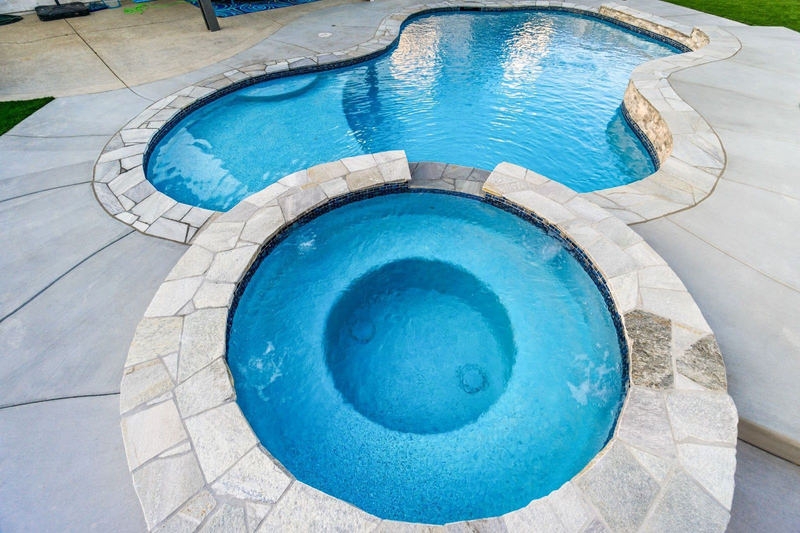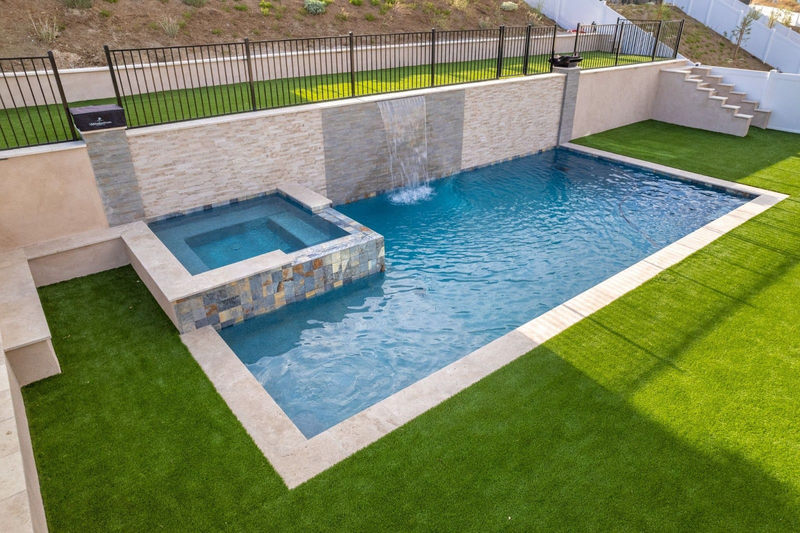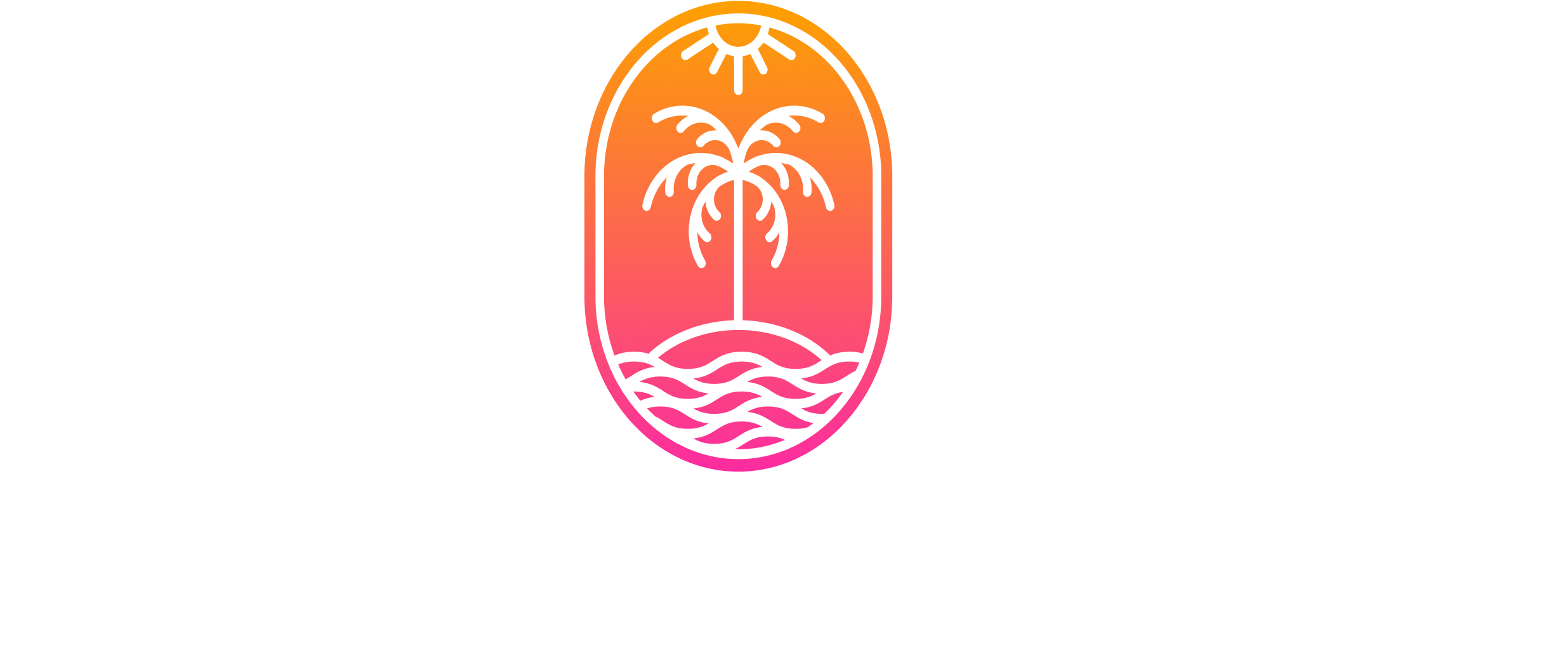Managing a commercial pool comes with challenges that residential pool owners never face. Between health department regulations, high bather loads, and the potential for costly shutdowns, commercial pool maintenance demands a completely different approach than your typical backyard setup.
Whether you’re running a hotel, apartment complex, or community center, keeping your commercial facility sparkling clean and legally compliant requires understanding the unique demands these pools face daily.
Understanding Commercial vs. Residential Pool Maintenance
Commercial pools face dramatically different challenges than residential ones. While a backyard pool might see a few swimmers per day, commercial facilities can host hundreds of bathers in the same timeframe.
This increased usage creates several unique maintenance demands. The water chemistry fluctuates more rapidly due to higher levels of sunscreen, body oils, and organic contaminants. Filtration systems work overtime, and equipment experiences significantly more wear and tear.
Key differences include:
- Chemical demand increases exponentially with each additional swimmer
- Filtration turnover rates must handle peak occupancy loads
- Equipment sizing needs to accommodate the maximum capacity
- Regulatory compliance requires documented maintenance logs and regular inspections
The stakes are also much higher. A residential pool that goes green might inconvenience a family for a weekend. A commercial pool closure can mean lost revenue and potential legal liability.
This is why many facilities work with experienced commercial pool builders in California who understand these maintenance challenges from the design phase, creating systems that are easier to maintain and comply with regulations.
Essential Commercial Pool Cleaning Protocols
Effective commercial pool cleaning goes far beyond skimming leaves and vacuuming. These facilities require systematic approaches that address high-traffic contamination patterns.
Daily cleaning must include:
- Surface skimming multiple times throughout operating hours
- Tile line brushing to prevent the buildup of oils and organic matter
- Pool deck cleaning and sanitizing to prevent slip hazards
- Filter system inspection for proper flow rates and pressure readings
Weekly deep cleaning becomes crucial for maintaining water quality standards. This involves thorough brushing of all surfaces, backwashing filtration media, and detailed equipment inspection.
Many commercial facilities benefit from overnight cleaning schedules when pools are closed to swimmers. This allows for more aggressive techniques without disrupting operations.
Chemical Balance Management for High-Traffic Pools
Commercial swimming pool maintenance centers heavily on maintaining precise chemical balance under constantly changing conditions. Unlike residential pools, where chemistry might remain stable for days, commercial facilities can see dramatic shifts within hours.
Critical chemical parameters:
- Free chlorine levels between 1.0-3.0 ppm (higher end for busier periods)
- pH balance maintained between 7.2-7.6 for optimal sanitizer effectiveness
- Total alkalinity kept at 80-120 ppm for pH stability
- Calcium hardness is balanced to prevent equipment damage
Smart commercial operators implement automated chemical monitoring systems that provide real-time data and alerts. These systems can adjust chemical feeds automatically, reducing human error and ensuring compliance during peak usage.
Test water chemistry multiple times daily during operating hours. Morning readings might look perfect, but afternoon testing could reveal dangerous imbalances. Keep detailed logs of chemical adjustments and bather loads to predict future needs and demonstrate compliance during inspections.

Pool Maintenance Checklist for Commercial Facilities Need
A comprehensive pool maintenance checklist that commercial facilities can rely on prevents oversights that lead to violations or equipment failures.
Daily maintenance tasks:
- Water testing and chemical adjustment (minimum twice daily)
- Equipment inspection for proper operation and unusual noises
- Cleaning and sanitizing of decks, furniture, and high-touch surfaces
- Filtration system monitoring, including pressure gauges and flow rates
Weekly intensive maintenance:
- Deep cleaning of all pool surfaces and equipment
- Filter maintenance, including backwashing or media cleaning
- Equipment lubrication and detailed mechanical inspection
Monthly comprehensive service:
- Professional equipment inspection by qualified technicians
- Detailed water testing, including advanced parameters
- Preventive maintenance on pumps, heaters, and automation systems
This structured approach helps facilities maintain consistent standards while building documentation that satisfies regulatory requirements.
Professional Commercial Pool Service vs. DIY
The decision between professional commercial pool service and in-house maintenance depends on facility size, budget, and staff expertise. However, most commercial facilities benefit significantly from professional service relationships.
Professional technicians bring specialized knowledge of commercial-grade equipment and regulatory requirements. They understand high-bather-load challenges and can spot potential problems before they become expensive emergencies.
Many successful facilities use hybrid approaches—professional services for equipment maintenance and compliance oversight while handling daily cleaning with trained staff. Understanding basic maintenance fundamentals provides a solid foundation for in-house teams.
Essential Pool Maintenance Tips
- Equipment priorities: Monitor pump baskets and skimmers throughout the day. Clogged baskets reduce circulation and force equipment to work harder, increasing costs and wear rates.
- Water quality strategies: Test water multiple times during peak usage periods. Chemical levels change rapidly when dozens of swimmers enter within short timeframes.
- Cost management: Regular equipment maintenance costs significantly less than emergency repairs. Schedule professional service during off-peak periods to avoid disrupting operations.

Ready to Upgrade Your Commercial Pool?
Managing commercial pool maintenance successfully requires the right combination of knowledge, equipment, and professional support. Facilities that invest in proper maintenance systems see better guest satisfaction, lower operating costs, and fewer regulatory issues.
If you’re considering facility upgrades or new construction, professional pool design services can help create systems that are easier to maintain while meeting all commercial requirements.
